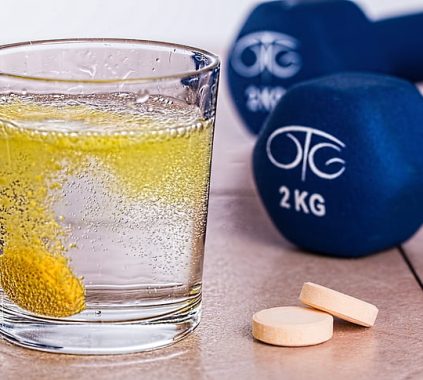What should be the best time to take vitamin D? Here is the answer! To get maximum absorption is the main concern as this supplement is widely taken around the world. There have been researches going on which determines the appropriate time.
In this article, we will loop into the best time to take vitamin D, what should be the dose age, factors contributing to its deficiency, and much more.
Top 2 Best Times to Take Vitamin D
People have become highly concerned these days about the optimal time to take supplements and how those interfere with their daily routine and physical or mental health. The best two times suggested by dietitians are with a meal and taking in first hand in the morning.
- Taking Vitamin D in the Morning
Taking vitamin D first thing in the morning may have advantages, one of the prominent ones would be that if you have kept it close to you on your bedside table or in a close by you won’t forget it. If a person is simultaneously taking other supplements, then it must not be taken in combination with any other supplement as it may cause any issue.
- Taking Vitamin D with a Meal
Vitamin D is recommended to take with meals, it could be breakfast, lunch, or maybe supper. It is absorbed efficiently if it is taken with a healthy diet, such as eggs, seeds, nuts, and some fruits, such as avocados.
However, regardless of no proper evidence of a specific time for taking any supplements, it is suggested that it must not be taken at night as it may disrupt your sleep pattern. You should take it 1 or maybe 2 hours before going to bed. You should make sure that it doesn’t interfere with your sleep.
However, you must keep in your consideration which time suits you better and why you must stick with it. You should take it consistently to maximize absorption.
Best Time and Dosage to Take Vitamin D
The Recommended dosage for adults is 15-20 mcg of vitamin D3 but it may still vary as pan er an individual’s body requirements.
Older people are in greater need of vitamin D for their body and must be supplied through supplements or diet, as their body can no longer make it by the sunlight.
Mothers who breastfed must take vitamin D supplements as their babies can’t get enough of it through milk.

Vegetarians and those who avoid consuming milk or seafood must take supplements as they are not getting enough of it. Fortified food must be incorporated into the diet then.
People who find difficulty in absorbing fat may be in greater need of vitamin D.
As much vitamin D is important, but it must not be overdosed as it may pose serious issues such as vomiting nausea, or in extreme cases kidney failure and maybe death.
The upper limit for vitamin D in normal individuals is 100 mcg, more than this will become problematic.
What Does Vitamin D Deficiency Cause?
- Vitamin D deficiency may be due to numerous factors, and people with compromised health may be at risk of vitamin D deficiency, specifically people who don’t spend much time under sunlight, and people who suffer from digestive problems.
- People who don’t consume red meat and are vegans are mostly at risk of vitamin D deficiency.
- Your mental health can also make you vitamin D deficient, depressed people are at greater risk.
- Vitamin D deficiency may be an underlying problem associated with cardiac diseases, high blood pressure, cancer, and autoimmune disorders.
- People who are susceptible to infections may be vitamin D deficient.
Types of Vitamin D: Which One is Best to Take?
Vitamin D2 and D3 are widely used supplements of vitamin D but are different from each other regarding sources, vitamin D2 is plant-based while vitamin D3 is animal-based and has comparatively greater bioavailability.
Food and Drug Administration (FDA) doesn’t deal with supplements so you must buy those which strictly follow Good Manufacturing Practices (GMPs). Moreover, asking your dietitian for any specific brand suggestion and looking up on your behalf may prove to be effective.
You must look up those which are consumer testified regarding its potential and must be safe to use.
The label must be carefully read to make sure no element would cause any harm to the user.
You May Like Reading About Best Multivitamin for Women
Why the Best Time to Take Vitamin D is with a Meal?
Vitamin D as fat-soluble vitamin doesn’t dissolve in water but in fat or oils. It is best absorbed with healthy fat foods such as seeds, nuts, eggs, avocados, olive oil, and other essential oils. However, dietitians are still confused that taking these with low-fat may prove to be effective or with high-fat foods.
A survey has been conducted where people were divided into three groups and were given different fat enrichment levels and were given vitamin D3 supplements for three months, and it was concluded that those who ingested it with a low-fat meal diet experienced high absorption.
Although, there is still a need of doing research on which food goes perfectly with vitamin D supplements.
Bottom Line
Although, there is no particular time for taking vitamin D many researchers have claimed that taking it with low-fat meals may be great as it will be absorbed maximum.
Another factor suggests that the best time to take vitamin D is during the morning, preferably during breakfast or lunch, or post-lunch time.
FAQs
When should I take vitamin D morning or night?
Although there is no specific time to take vitamin D, it could be taken anytime Although taking it with a meal is preferred. Taking it at night may disturb sleep so you can avoid taking it at night.
What time of day should you take vitamin D?
Taking vitamin D during your mealtime proves to be best, as it will be best absorbed.
Why is it better to take vitamin D at night?
Although, some researches show that taking it during the night may disrupt sleep while some researches show that it may help in releasing melatonin, which properly regulates circadian rhythm.
What is the better way to take vitamin D?
Vitamin D should be taken orally and with a meal as it will be better absorbed this way.
For more information, visit drugscorner.com




